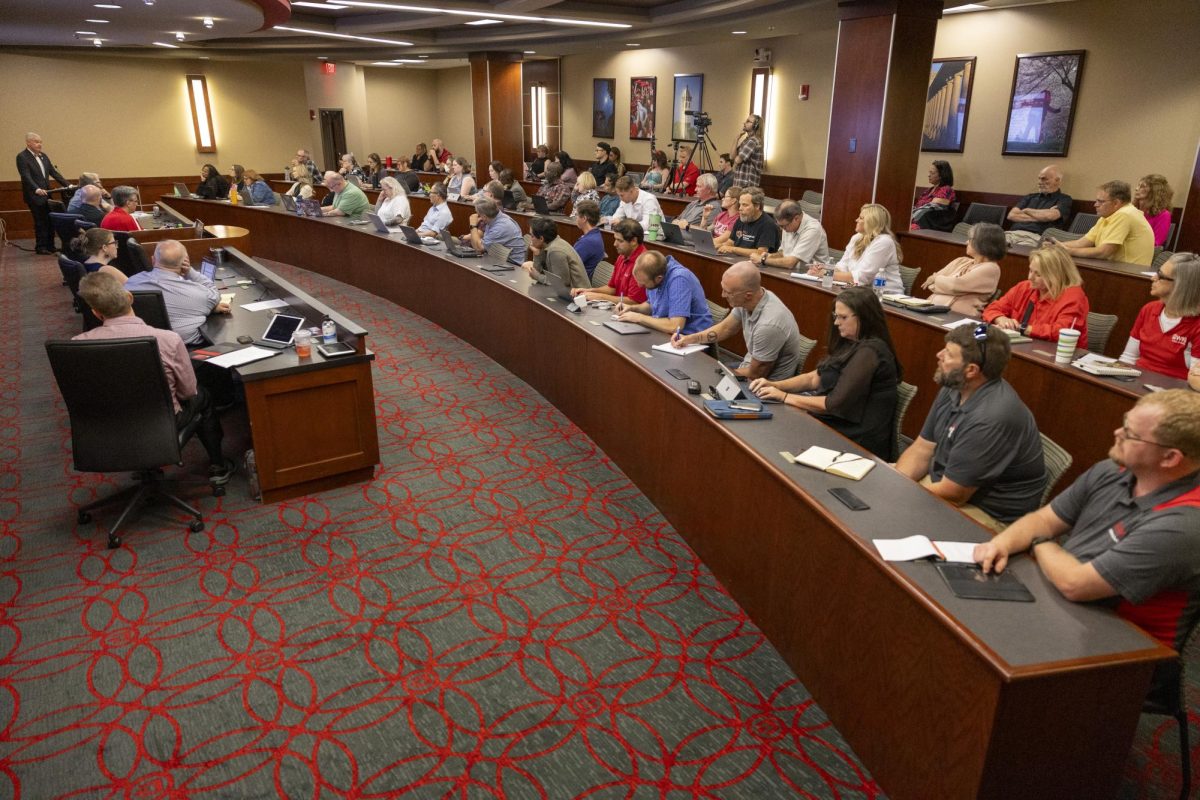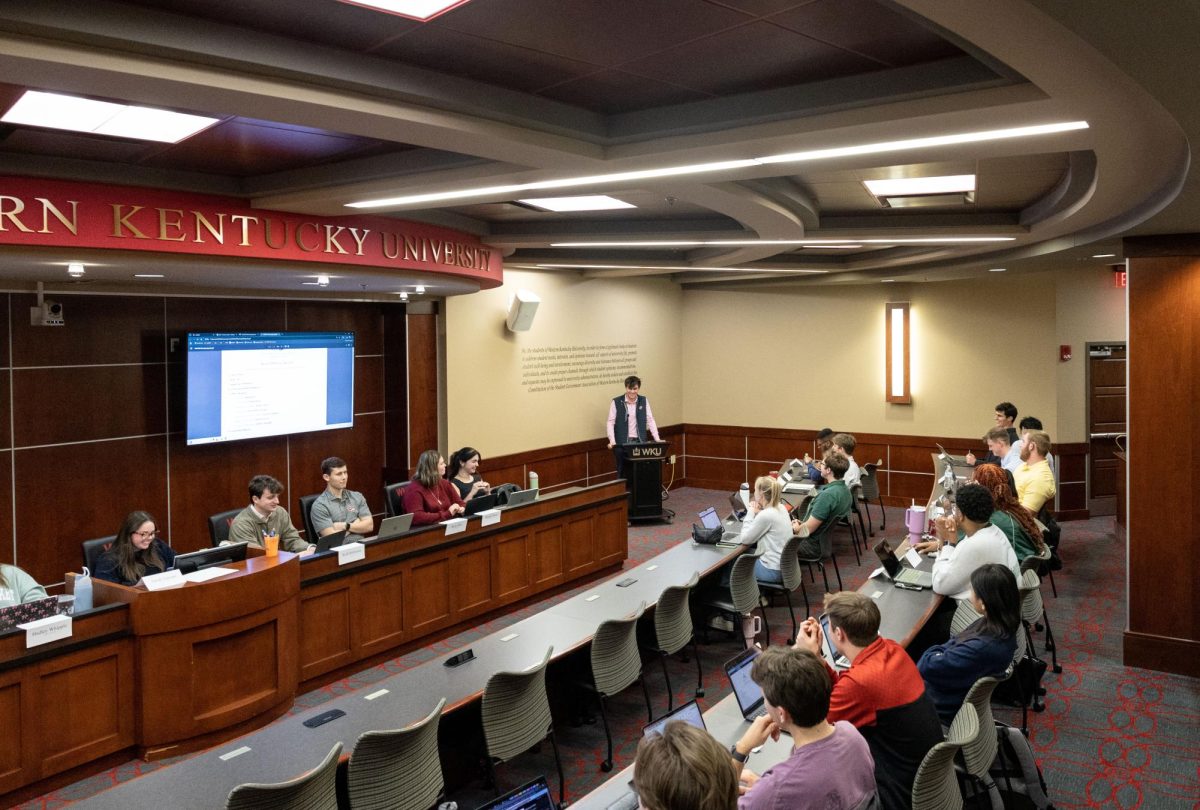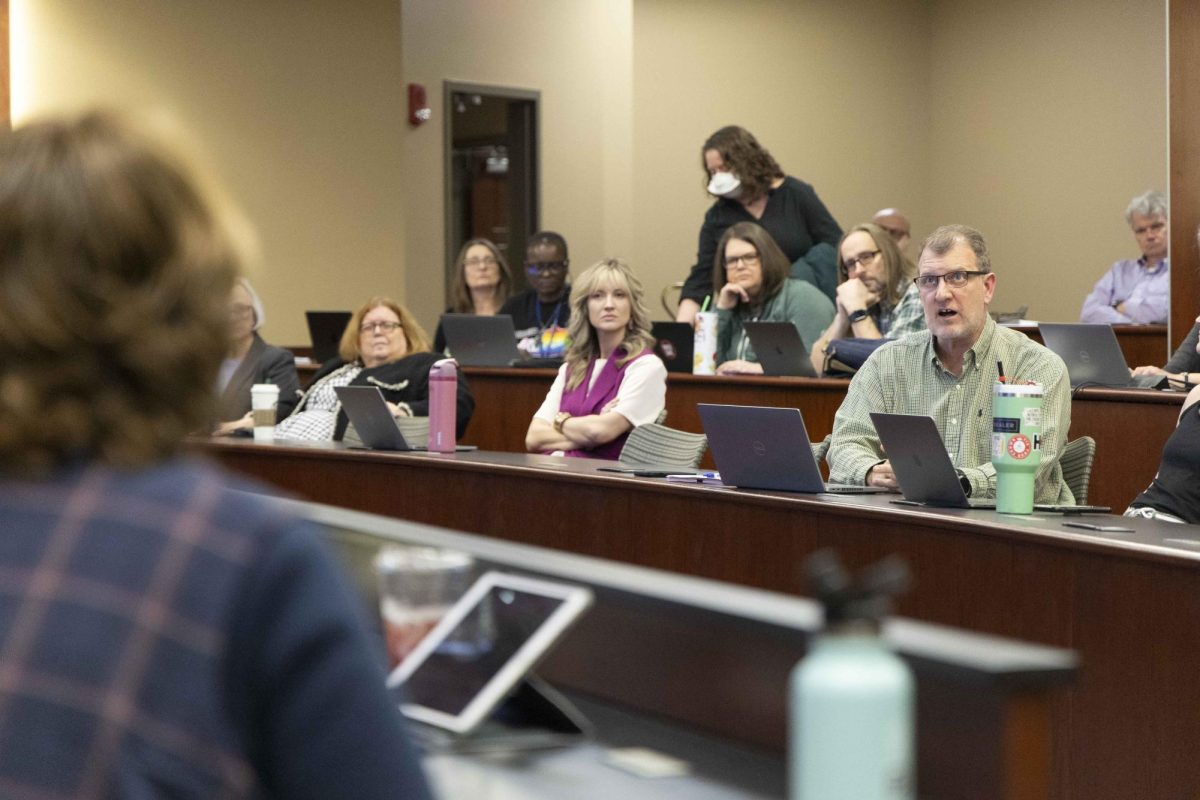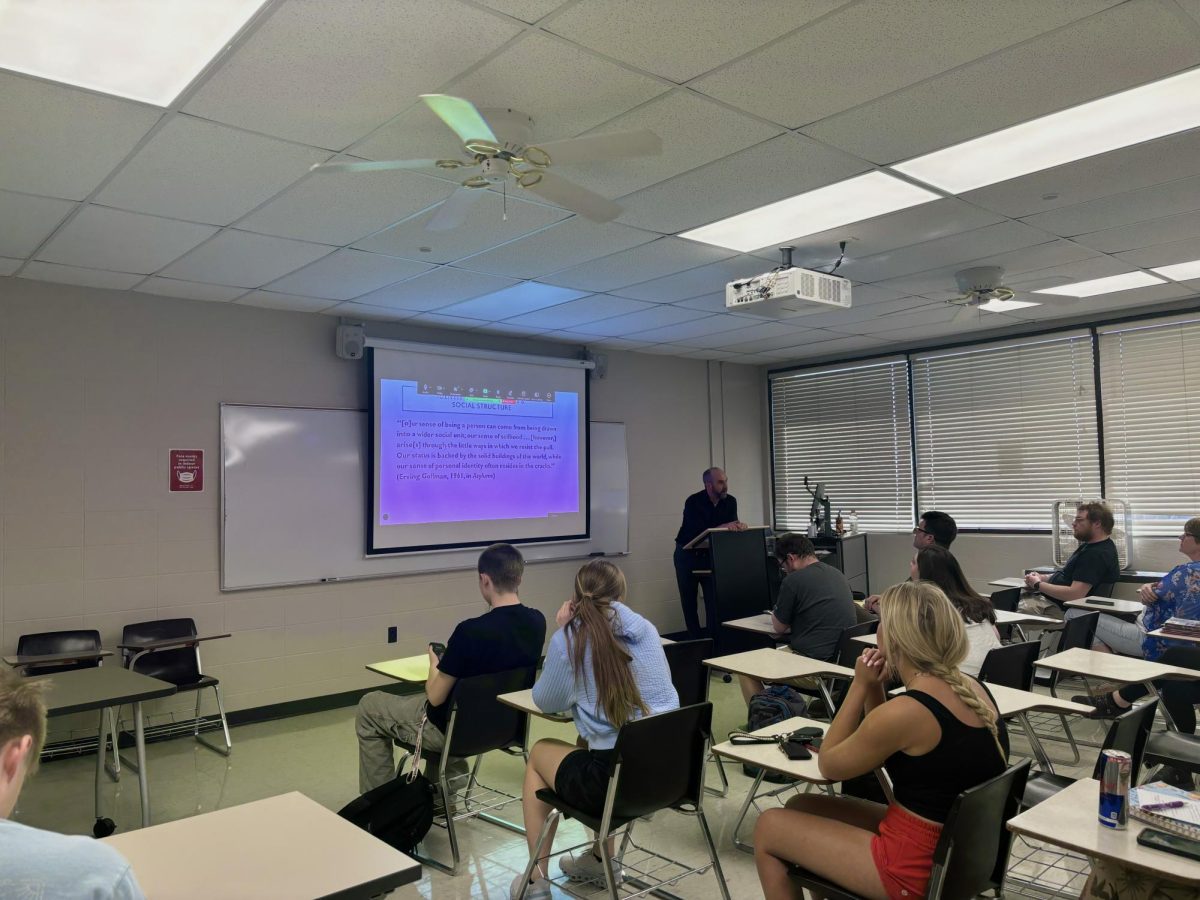WKU’s 10% overhead charge on revenue dependent and auxiliary units is still being worked out by administration, Susan Howarth, executive vice president for strategy, operations and finance, told the faculty senate on Thursday.
WKU’s 10% overhead charge on revenue dependent and auxiliary units is still being worked out by administration, Susan Howarth, executive vice president for strategy, operations and finance, told the faculty senate on Thursday.
Howarth spoke to the senate during its monthly meeting about university budget updates surrounding faculty salary and healthcare and the status of the 10% overhead charge that was announced at the Board of Regent’s special budget meeting on June 7.
“We still plan on doing it (the 10% overhead charge),” Howarth said, “But it’s probably not going to be this year.”
Howarth said there is still discussion about who will be charged and what will be charged.
“There’s so many different ways of charging this,” Howarth said. “Do you charge it to revenue? Do you charge it to expenditures?”
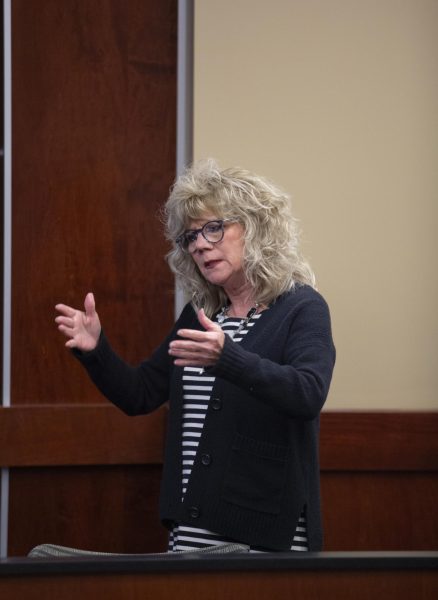
Howarth said that most institutions have an overhead charge “in some form or fashion,” but she said WKU wants to make sure it does it right.
Howarth said meetings were held in June, after the regents’ meeting, to examine how to implement the overhead.
“It became very apparent that there were a lot of details to work out and a lot of discussions to be had,” Howarth said.
Howarth emphasized the overhead will be reevaluated so that it can be implemented in fiscal year 2026, which begins on July 1, 2025.
Also at the meeting, Faculty Regent Shane Spiller shared with the senate conversations he’s had with industry experts and WKU President Timothy Caboni about faculty salary increases.
During the faculty senate’s September 19 meeting, Caboni emphasized a desire to transition to merit-based compensation increases for faculty.
Spiller told the senate that what he has consistently been told by compensation experts and from WKU’s Budget Executive Committee is that a 2% salary raise pool is “just not enough to be able to do merit – to differentiate amongst faculty and staff.”
“The president is at least committed to doing a 2% raise pool every year for the last few years, which, for those of us who’ve been here longer than the last few years, remember there were many years with no raises, so that’s an improvement,” Spiller said. “But if we’re going to talk about merit, what would it take for us to be able to do this and not waste everyone’s time?”
Spiller also said he has concerns over the level of training university supervisors may or may not have in making “tough calls” on if a faculty member gets a raise or does not.
“I’m just not sure that we’re up to that level of training to do that,” Spiller said.
Also at the senate’s meeting on Thursday:
- Howarth said university salary expenses are “relatively flat” over the prior year.
- Dan Clark, the senate’s vice chair, asked Howarth whether there were ways the university could adjust the methods for increasing faculty costs. “When we do salary increases, people go up by a percentage of their salary, which helps the people at the top but not the people at the bottom,” Clark said. “But when the cost of being an employee here, for like health insurance premiums and parking, goes up, it goes up by a flat dollar increase. Which, once again, helps the people at the top more than the people at the bottom.” Howarth responded, saying that her office could “certainly look at that” for next year.
News Reporter Cameron Shaw can be reached at cameron.shaw555@topper.wku.edu.


